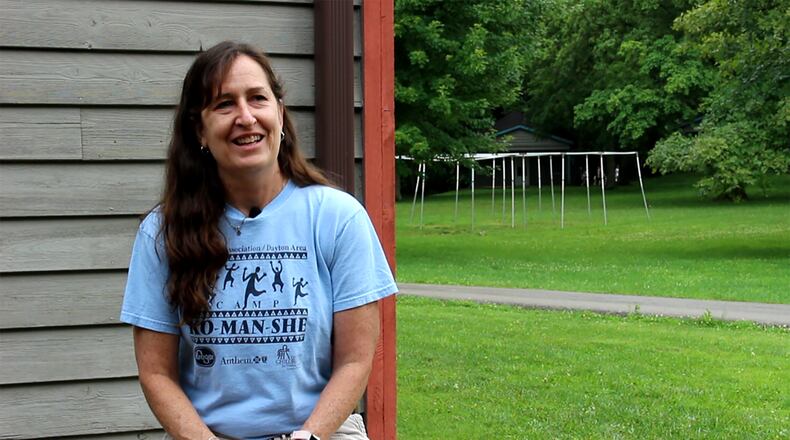“My mom had been a pre-med major in college, so she knew about diabetes,” Duval said. “She suspected it because of my insatiable thirst.”
Extreme thirst is a symptom of type 1 diabetes, a disease that affects approximately 1.9 million Americans, according to the American Diabetes Association. About 244,000 of those people are children or adolescents. Thought now to be caused by an autoimmune reaction or triggers in the environment, type 1 is different from type 2 in that diet and lifestyle habits are not the cause of the disease.
“In those days, they hospitalized you for two weeks once you were diagnosed,” Duval said who started receiving regular insulin shots for treatment. “The insulin was different, and we didn’t have glucose meters to measure blood sugar at home.”
When Duval did go home, she had become accustomed to getting stuck with needles. Her mother became her caregiver and gave her the needed insulin injections. Education was important since no one in Duval’s family had the disease nor did they know anyone who had it.
“I remember doctors and my family trying to restrict my activities,” Duval said. “They couldn’t really do that because I was really hardheaded. Our entire family was always active.”
Though today type 1 diabetics have no such restrictions and instead those with the disease are encouraged to keep a constant eye on blood sugar changes, Duval remembers concern about her playing soccer. She played all through high school and even in college at Wright State University.
She started at age 3 with one insulin shot daily and then at age 12 she went to two and at age 19, three. After she graduated from college with a degree in nursing in 1990, her shots increased to four to six daily.
“When I went to nursing school, I wanted to be a diabetic educator in pediatrics,” Duval said.
She ended up getting hired at Dayton Children’s to educate children about their type 1 diabetes and remained in that position for 16 years before moving to the Gastrointestinal Diseases department.
“I had the personal experience with diabetes and that really helped me connect with the kids,” Duvall said. “Especially the teenagers.”
Duval and her family received support from doctors and other community groups but for Duval, going to summer camp beginning at age 12, was a game changer.
“I loved camp,” she said. “It was the only place I had involvement with other kids like me and I made some lifelong friendships.”
That camp is Ko-Man-She, a summer program developed by Diabetes Dayton. Located in Bellefontaine, it is designed for young people ages 7 – 17 and is held in early July each year.
“The camp is staffed by doctors, counselors and dieticians,” Duvall said. “Campers have 24-hour health care coverage.”
After six years as a camper, Duval decided to become a counselor, as a way of giving back for all the support and friendship she experienced over the years. She was 18 years old during her first summer as a counselor in 1986. Eventually she moved into the position of program director and then became a camp nurse.
“Camp is still important to so many kids,” Duval said. “It’s the only place kids get to be around others like them and though we’ve come a long way, diabetes is still perceived as negative by people. Type 1 isn’t about living an unhealthy lifestyle or not exercising enough. It is far more complex.”
Duval noticed over the years that the children she met either through her job or her roles at Camp Ko-Man-She, would often become frustrated with people who didn’t understand type 1 diabetes.
“Sometimes kids would come to camp and would be depressed because of what they heard about their disease,” Duval said. “Camp always allowed them to relax and helped them change how they dealt with their disease going forward.”
Duval continues to take a week off from her job at Dayton Children’s to work for the camp every year, helping about 100 campers learn to manage their disease and their lives. She says it’s important and she hopes to continue as long as she is able.
“Diabetes Dayton is a support system for people with diabetes, both 1 and 2,” Duval said. “They help people with supplies and education, but the camp really started it all.”
Vowing early on that she wouldn’t allow her diabetes diagnosis to restrict her from doing what she wanted to do, she encourages kids she meets by telling them they can do anything they set their minds on.
“Unless I told people growing up, most of them didn’t know I was diabetic,” Duvall said. “I want other kids to have that same experience and to know that getting a type 1 diagnosis doesn’t have to mean you can’t be a kid and live your life.”
About the Author





